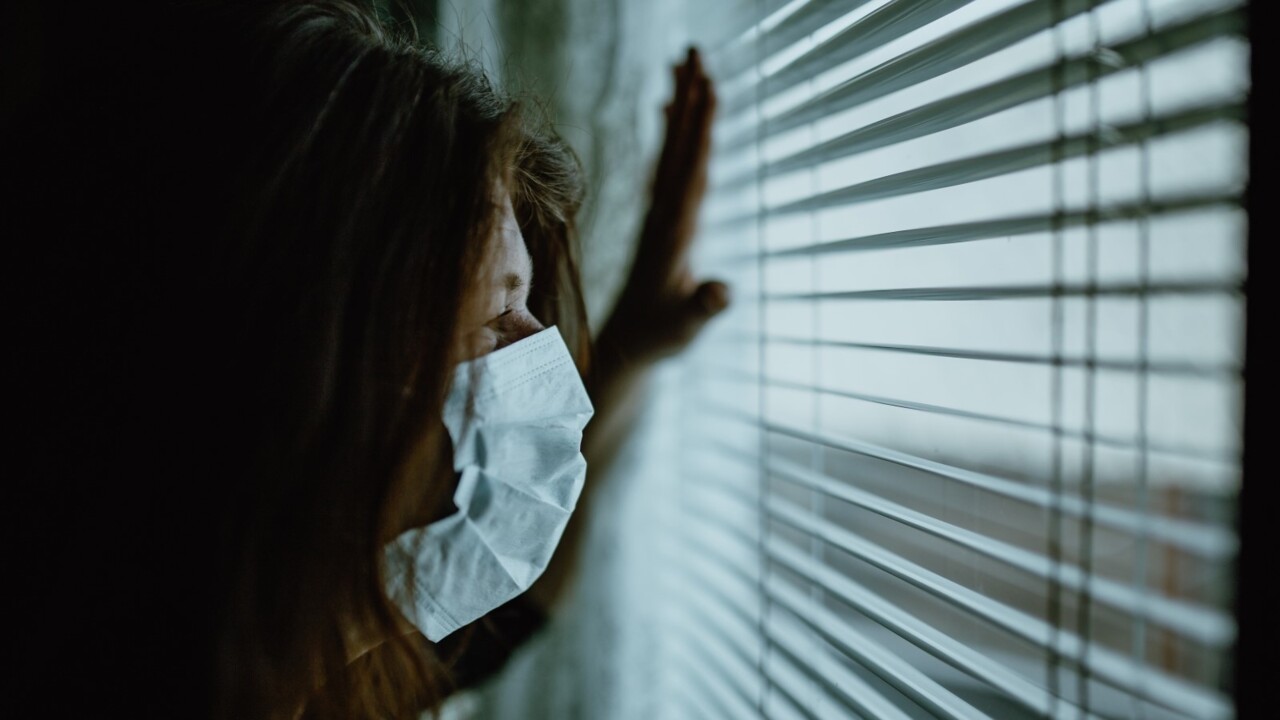Covid loneliness lingers, especially among young, report finds
The pandemic might be behind us, but the national psyche remains fragile, a new report finds.

Australia’s Covid hangover is lingering as life satisfaction remains lower and psychological distress higher than before 2020, a new report has found.
Despite some recovery since the height of the pandemic, the national psyche is still fragile, with life satisfaction again falling and psychological distress rising so far in 2023, likely driven by increasing financial stress.
The Australian Institute of Health and Welfare survey also reports that Covid has accelerated other social trends, including diminishing social connection, more working from home and the drift away from volunteering.
The institute’s biennial Australia’s Welfare report notes that five million people received an income support payment in March this year, with the national welfare bill coming in at $212bn in 2021-22. There were 2.6 million people receiving the age pension in March this year and the welfare workforce employed 663,000 people in 2022.
But in its first iteration since the end of the pandemic, the AIHW report highlights Covid’s ongoing effect on health, welfare and wellbeing.

National wellbeing has been on a rollercoaster since early 2020, it says. “Average life satisfaction fell during the early stages of the pandemic (from 6.9 out of 10 in January 2020 to 6.5 in April 2020), rising again as infection rates and lockdowns eased,” it says, citing the findings of an ANUPoll survey.
“(It) increased from August 2021, with a slight decline between January 2023 and August 2023 (from 6.8 to 6.6). However, it remains lower than late 2020, early 2021 and pre-pandemic.”
The ANUPoll also found significant changes to psychological distress scores, noting the pre-pandemic average (based on the internationally accepted K6 model) was 11.2, rising to 11.9 in April 2020 before falling back to 11.1 in April 2021. But by last month it had rebounded to 11.8.
Australian National University social policy researcher Nick Biddle said the drivers of poor mental health outcomes had changed.
“Before it was the lockdown experience, the loneliness, the inability to undertake normal social interaction that was the trigger for higher psychological distress,” Professor Biddle said.
“But now it’s very much correlated with financial stress, and a fair bit of that is around the cost of living, including the cost of housing,” he said.
Loneliness is also canvassed in the report, and while it has improved since the early days of the pandemic when almost one in two people reported feeling lonely at least some of the time in the previous week, the most recent figures from October last year show it was still 36 per cent.
People aged 18-24, and especially women, reported the highest levels of loneliness.
Sydney University student Talia Aster said she wasn’t surprised by the high levels of loneliness in her age group.
“Even without Covid-19, it’s just a very stressful time for people who are aged 18 to 24 just because there is such a high expectation that you have to have a certain social life, you have to keep up with the (social) expectations,” Ms Aster said.
“And you’re still figuring yourself out and what you like, so when you don’t really know what that is I think your emotions are at an added high.”
Covid has changed attitudes to work, the report finds. “More than twice as many people aged 18 and over with a job are now working from home most days – increasing from 13 per cent of people prior to the pandemic (before March 1, 2020) to 30 per cent in April 2022,” it notes.
Professor Biddle said there didn’t appear to be an overall correlation between working from home and national wellbeing.
“Some benefit from the reduced commuting time and additional time with the family, while others sense the loss of social connection. I suspect it’s more of a negative for those entering the labour market.”
The report finds the long-term decline in those volunteering had sped up during Covid.
“In April 2023, 33 per cent of people had undertaken voluntary work in the previous 12 months – which was lower than before the pandemic,” it states.
Additional reporting: Harry Brill






To join the conversation, please log in. Don't have an account? Register
Join the conversation, you are commenting as Logout